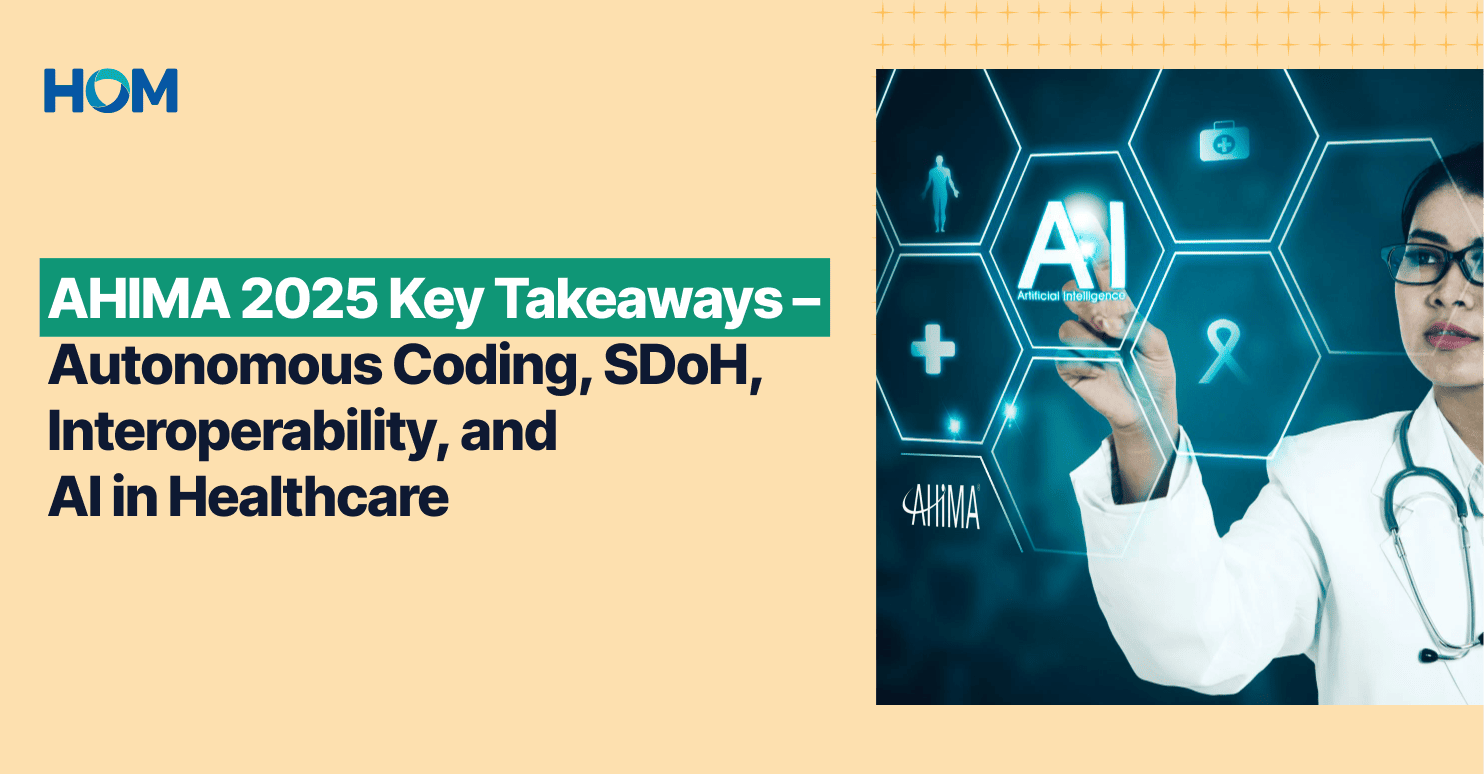.png)
Introduction
Healthcare providers today face an unprecedented claims processing challenge. As reimbursement models grow more complex, denied claims continue to plague revenue cycle performance. According to AHIMA, medical claim denials have increased by 20% over the past five years, with average initial rejection rates now around 20%. This doesn't account for the significant cost of reworking denied claims, which can average $25 for practices and $181 for hospitals.
This trend represents millions in lost or delayed revenue for healthcare organizations already operating on thin margins. Against this backdrop, artificial intelligence has emerged as a transformative solution. By analyzing vast datasets and identifying patterns invisible to human reviewers, AI tools are fundamentally changing how successful organizations approach claims management.
Let us explore how AI in healthcare claims processing addresses the root causes of denials while improving first-pass rates and reducing administrative burden.
The Crisis in Healthcare Claims Processing
The financial impact of denied claims extends far beyond the initial rejection. Industry data reveals that 24% of claims requiring resubmission cannot be recovered at all, representing permanent revenue loss.
Each denied claim costs an average of $25.20 to rework—an expense that compounds when multiplied across thousands of monthly claims submissions.
Primary Causes of Claim Denials
Three factors consistently drive the majority of claim denials:
- Coding errors that misrepresent services provided, creating a disconnect between documentation and submitted codes
- Incomplete documentation that fails to establish medical necessity or lacks required specificity
- Eligibility verification gaps that result in coverage mismatches between provided services and insurance status
Traditional approaches to addressing these issues rely on retrospective analysis—examining denials after they occur and implementing corrective measures. This reactive methodology fails to address the fundamental need: preventing errors before claim submission rather than managing rejections afterward.
AI in Healthcare: Revolutionizing Claims Management
AI applications are transforming healthcare revenue cycle management through several key technologies:
Advanced Pattern Recognition
Machine learning algorithms analyze thousands of previously processed claims to identify patterns associated with both successful adjudication and denial. These systems continuously improve by incorporating new data, creating an increasingly accurate predictive model specific to each provider's claim profile.
Enhanced Documentation Analysis
Natural language processing (NLP) enhances documentation quality by analyzing clinical narratives and identifying potential gaps or inconsistencies that might trigger clinical validation denials. By flagging problematic documentation before claim submission, NLP enables providers to address issues proactively rather than retrospectively.
Predictive Denial Prevention
Perhaps most valuable is the implementation of predictive analytics that identify high-risk claims before submission. Recent studies demonstrate that deep-learning frameworks achieve a 22.2% relative improvement in denial detection at 95% precision—significantly outperforming traditional rule-based screening approaches.
This advanced warning system allows providers to intervene with targeted corrective actions on specific claims most likely to be denied.
Key Benefits of AI-Powered Healthcare Claims Processing
When implemented effectively, AI-powered claims processing delivers multiple benefits that directly enhance financial performance:
Dramatic Improvement in First-Pass Success
Integrated AI routing and knowledge base systems have significantly boosted first contact resolution rates from the industry standard of 65% to 83%. This improvement has yielded substantial financial benefits for contact centers, including a 45% decrease in cost per contact and a 32% reduction in annual operational expenses.
Operational Efficiency Gains
Organizations implementing AI-enhanced claims processing report processing time reductions of up to 80%, cutting claim turnaround from several weeks to just 24–48 hours.
Enhanced coding accuracy, particularly for complex cases, helps organizations exceed the industry clean claim rate benchmark of 95% for high-performing organizations.
Real-Time Error Resolution
The real-time error identification capabilities of AI systems eliminate the lengthy feedback loop traditionally associated with denied claims. Rather than waiting weeks to identify and address issues, staff can make corrections before claims leave the organization.
This improves both cash flow and revenue predictability, creating more stable financial operations.
AI in Healthcare: Best Practices for Implementing Technology in Claims Processing
What best practices should healthcare providers adopt to maximize the benefits of AI in healthcare?
Data Foundation Requirements
Successful AI implementation begins with data quality. Organizations must ensure their historical claims data is comprehensive, accurate, and properly structured to support machine learning algorithms. This often requires preliminary data cleansing and standardization before implementation.
Staff Engagement and Training
Staff training and change management deserve equal attention. The most advanced AI system will underperform if staff don't understand how to interpret its recommendations or incorporate them into workflows.
Effective training programs focus not only on technical operation but also on developing an understanding of how AI augments, rather than replaces, human expertise.
Healthcare-Specific Solutions
When selecting an AI solution, organizations should prioritize systems specifically designed for healthcare claims over general-purpose AI platforms. Healthcare-specific solutions incorporate the industry's unique regulatory requirements, coding standards, and payer rules that generic AI solutions can't adequately address.
Security and Compliance Considerations
Compliance and security considerations remain paramount throughout implementation. All AI systems must maintain full HIPAA compliance while securing protected health information through appropriate encryption and access controls.
ROI Measurement Framework
Finally, organizations should establish clear metrics for measuring ROI from AI implementation. Beyond the obvious metrics of denial rates and first-pass resolution, consider broader financial impacts like reduced days in accounts receivable, staff productivity improvements, and reduced administrative costs.
Takeaway
AI in healthcare claims processing represents a fundamental shift in how organizations approach revenue cycle management. By preventing denials and increasing first-pass rates, these technologies directly enhance financial performance while reducing administrative burden.
HOM helps healthcare organizations leverage AI through the comprehensive suite of revenue cycle solutions. The approach combines advanced technology with deep industry expertise to deliver measurable improvements in claims processing performance.
To learn how your organization might benefit from AI-enhanced claims processing, email partnerships@homrcm.com for a complimentary claims analysis.
Bring a change to your Healthcare Operations
A partnership with HOM gives you an inherent:
Connect with our experts for a quick analysis and possibilities.

















